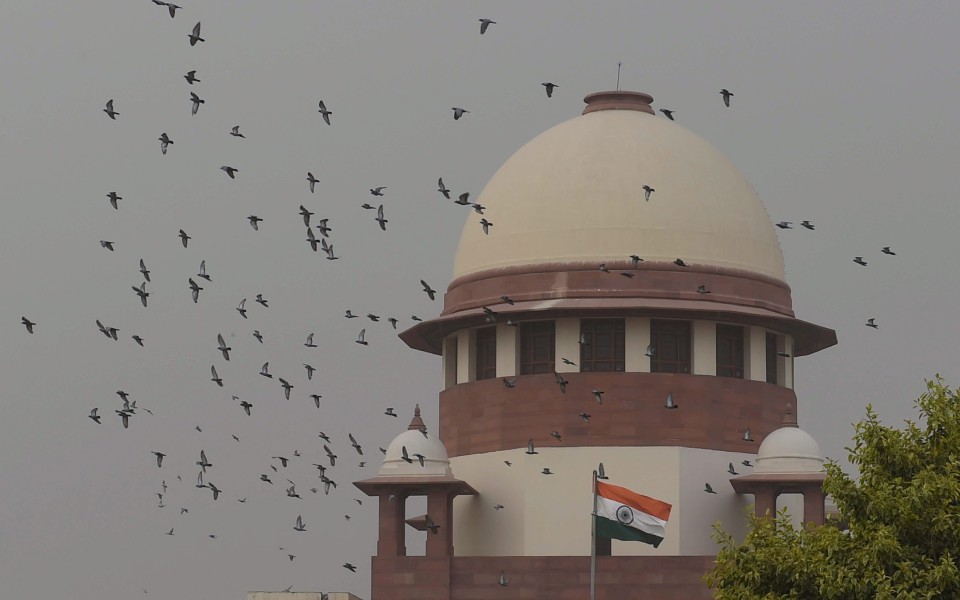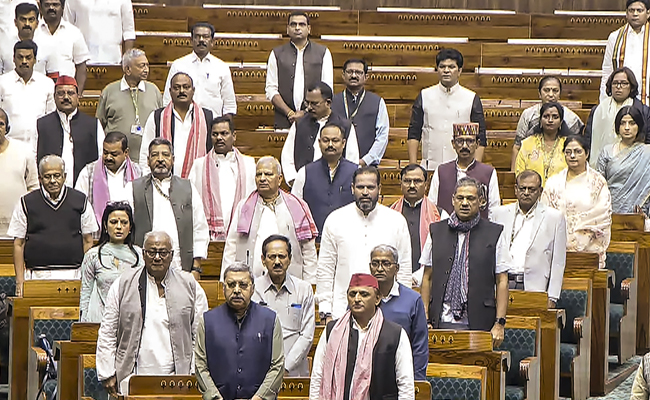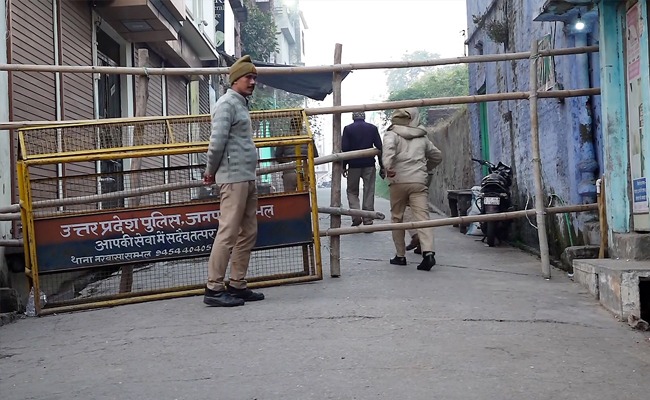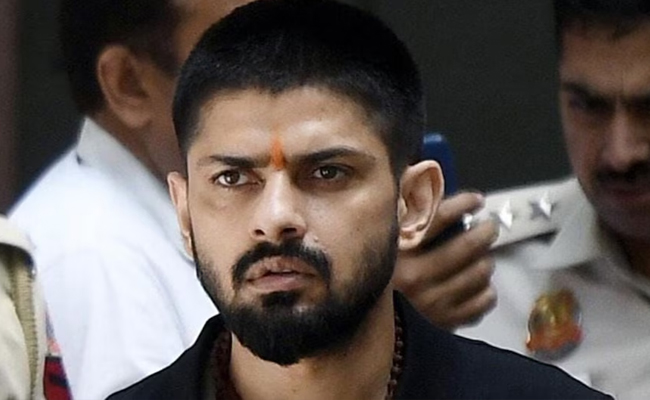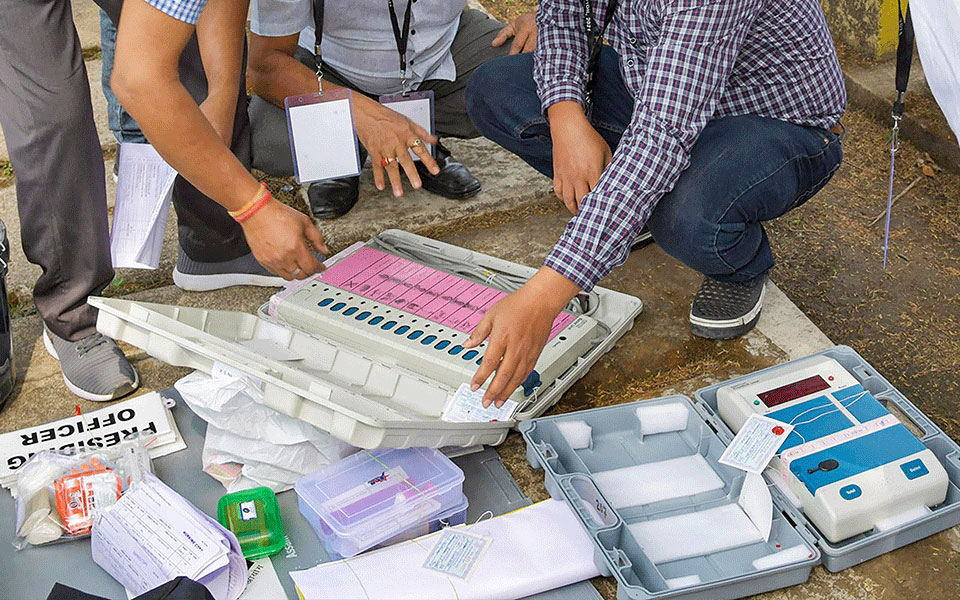New Delhi, Oct 3: If sexual acts by a man with his own wife is made punishable as "rape", it may severely impact the conjugal relationship and lead to serious disturbances in the institution of marriage, the Centre has told the Supreme Court.
Opposing the criminalisation of marital rape, which is sought by many petitioners before the apex court, the Centre has filed its preliminary counter affidavit in the top court.
The apex court is seized of petitions raising the vexed legal question of whether a husband should enjoy immunity from prosecution for the offence of rape if he forces his wife, who is not a minor, to have sex.
Under the exception clause of Section 375 of the Indian Penal Code (IPC), now repealed and replaced by the Bharatiya Nyaya Sanhita (BNS), sexual intercourse or sexual acts by a man with his wife, the wife not being minor, is not rape.
Even under the new law, Exception 2 to Section 63 (rape) says that "sexual intercourse or sexual acts by a man with his own wife, the wife not being under eighteen years of age, is not rape".
"Furthermore, it is submitted that striking down the exception 2 of section 375 of IPC on the ground of its constitutional validity will have a far-reaching effect on the institution of marriage if sexual intercourse or sexual acts by a man with his own wife is made punishable as 'rape'," the Centre said in its affidavit.
"It may severely impact the conjugal relationship and may lead to serious disturbances in the institution of marriage," it said.
The Centre said in the fast growing and ever changing social and family structure, misuse of the amended provisions can also not be ruled out as it would be difficult and challenging for a person to prove whether consent was there or not.
It said to decide on the constitutionality of the provision, a holistic approach and consultation with all the states needs to be undertaken after taking their views into consideration.
"This is more so since the issues involved have a direct bearing on the society in general and is a part of Concurrent List of the Seventh Schedule to the Constitution of India," the Centre said.
It said the issue involved in the matter is more of a social issue rather than a legal issue and the same cannot be decided without proper consultation with all the stakeholders or taking the views of all the states into consideration.
"It is submitted that the act colloquially referred to as 'marital rape' ought to be illegal and criminalised. The central government asserts that a woman's consent is not obliterated by marriage and its violation should result in penal consequences. However, the consequences of such violations within marriage differ from those outside it," the affidavit said.
It said Parliament has provided different remedies, including criminal law provisions, to protect consent within marriage.
"Given the nature of the marital institution in our socio-legal milieu, if the legislature is of the view that, for preservation of the marital institution, the impugned exception should be retained, it is submitted that it would not be appropriate for this court to strike down the exception," the Centre said.
It said the Government of India is committed to fully and meaningfully protect the liberty, dignity and rights of every woman who are the "fundamental foundation and a pillar of a civilised society".
The affidavit said a husband certainly does not have any fundamental right to violate the consent of the wife, however, attracting the crime in the nature of "rape" as recognised in India to the institution of marriage can be arguably considered to be excessively harsh and therefore, disproportionate.
It said the question involved in these petitions may not be treated merely as a question concerning constitutional validity of a statutory provision as the subject matter has and will have very far-reaching socio-legal implications in the country.
"The matter, therefore, needs a comprehensive approach rather than a strictly legal approach," the Centre said.
"Therefore, it is respectfully submitted that if the legislature decides to exempt, from the rigour of such a charge, and such a label, husbands, vis-a-vis their wives, given the intelligible differentia that exists in a marital relationship vis-a-vis other relationships, the said decision and discretion should be respected and not interfered with especially when a separate suitably tailored penal remedy is provided by the Legislature," it said.
The affidavit said the outcome of the petition will have a larger impact on the society, especially considering the concept of marriage in India which creates social and legal rights on the part of both individuals and others in the family.
A bench headed by Chief Justice D Y Chandrachud is seized of various pleas on the issue.
The top court on January 16, 2023 sought the Centre's response on a clutch of petitions assailing the IPC provision, which provides protection to a husband against prosecution for forcible sexual intercourse if the wife is an adult.
Later, it also issued a notice to the Centre on a similar plea challenging the BNS provision on the issue.
The BNS, Bharatiya Nagarik Suraksha Sanhita and the Bharatiya Sakshya Adhiniyam came into effect from July 1, replacing the IPC, Code of Criminal Procedure (CrPC) and the Evidence Act, respectively.
Let the Truth be known. If you read VB and like VB, please be a VB Supporter and Help us deliver the Truth to one and all.
New Delhi (PTI): Lok Sabha proceedings were adjourned till 12 noon on Wednesday amid protests by Opposition members over the Adani controversy, recent violence in Sambhal in Uttar Pradesh and other issues.
As soon as the House met for the day, many Opposition members, including from Congress, were on their feet as they sought to raise various issues.
Some members from the Congress and Samajwadi Party were in the Well while other Opposition members stood in the aisle and shouted slogans.
Speaker Om Birla asked the Opposition members to allow the Question Hour and said they can take up their issues later.
Amid the din, one question was taken up.
However, the protests continued and the proceedings, which went on for about six minutes, were adjourned till noon.
The Opposition members wanted to discuss the Adani controversy and the recent violence in Uttar Pradesh's Sambhal.
The Adani Group said on Wednesday that Gautam Adani, and his nephew Sagar have not been charged with any violation of the US Foreign Corrupt Practices Act (FCPA) in the indictment that authorities filed in the New York court in an alleged bribery case.

